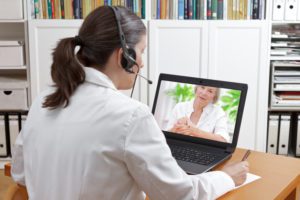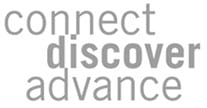Are Virtual Skin Cancer Screenings the New Norm?
- Posted on: Dec 15 2021
 Telehealth has become much more common in the past 18 months. Initially, doctors began offering virtual visits to patients to reduce the spread of COVID-19. The practice has continued largely because both doctors and their patients have learned that it is more convenient and, with due diligence, does not diminish the effectiveness of the care that is provided. Virtual skin cancer screenings, for example, may invite more patients to schedule these vital dermatology examinations more regularly, thus decreasing the number of skin cancer cases across the board. Here, we discuss some of the benefits and drawbacks of virtual skin cancer screenings that doctors and patients should recognize.
Telehealth has become much more common in the past 18 months. Initially, doctors began offering virtual visits to patients to reduce the spread of COVID-19. The practice has continued largely because both doctors and their patients have learned that it is more convenient and, with due diligence, does not diminish the effectiveness of the care that is provided. Virtual skin cancer screenings, for example, may invite more patients to schedule these vital dermatology examinations more regularly, thus decreasing the number of skin cancer cases across the board. Here, we discuss some of the benefits and drawbacks of virtual skin cancer screenings that doctors and patients should recognize.
Virtual Screenings can Detect Skin Cancer Early
The goal of skin cancer screenings and awareness is to identify early skin cancers so they can be treated quickly and conservatively. Because a skin cancer screening is purely visual in nature, it is well-suited for virtual visits. Dermatologists often spot concerning growths on sight, which means they can do so via a photograph or during a visit conducted over video, provided that the resolution is clear and high-quality. The validity of virtual microscopy was proven in a 2016 study, which confirmed that many nonmelanoma skin cancers could be initially diagnosed without the use of a traditional microscope.
In this area, it is important to keep two critical points in mind. First, an initial diagnosis of skin cancer reached during a virtual visit must be confirmed in an in-person visit. At that appointment, the doctor may perform a biopsy or may perform the appropriate procedure to remove the skin cancer, especially if it is small and superficial. Second, patients must understand that a skin cancer screening is a job for a board-certified dermatologist, even when we are talking about the value of virtual visits. Technology apps should not be used to screen oneself for skin cancer. They are a poor substitute for personal medical care.
Virtual Screenings can Support Optimal Treatment Planning
Early in the days of the COVID pandemic, dermatology visits decreased more than 60%. Years earlier, though, research had determined that dermatologists who incorporated telehealth visits into their practices reduced patient wait times significantly. Reduced wait times shortened the time between a patient’s evaluation and diagnosis and the start of treatment. Patients who are offered virtual visits for skin cancer screenings are more apt to take advantage of them and therefore more likely to receive the care they need when it would be most efficient and conservative. Dermatologists can not only perform the initial skin cancer screening but also the post-biopsy consultation in which they can discuss their recommended treatment plan with the patient. The virtual visit also enhances contact between the doctor and the patient, who understandably may have many questions.
Skin cancer remains a prevalent health concern. The American Society for Mohs Surgery supports board-certified physicians through ongoing educational opportunities and more. For more information, contact us at (800) 616-2767.
Posted in: Skin Cancer


